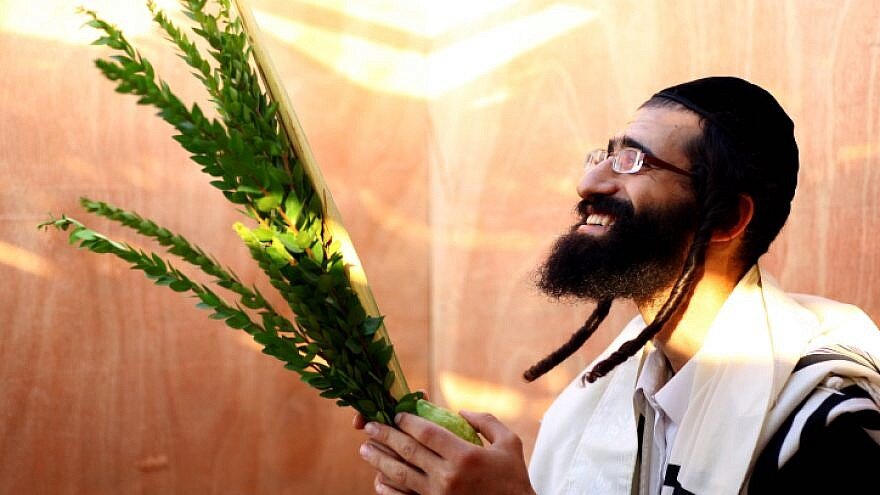
BIBLICAL JEWISH HOLIDAYS
The Jewish calendar is a combination of biblical command and Jewish tradition. For those new to the Jewish calendar, it may be helpful to know that Jewish days always begin in the evening. Therefore, for holidays where the celebration begins in the evening, we list the eve of the holiday separately.
PURIM
This holiday from the book of Esther is a good time to read the story of Esther with your family. It is customary to yell “boo” to drown out Haman’s name and to cheer every time Mordecai’s name is read. Little Jewish cookies called Hamentaschen are traditional as well as games and fun.
EVE OF PASSOVER
This is the time to have the Passover Seder. There are many books available to teach you how to do this. Jesus’ Last Supper was a Seder. On the third cup of the Seder he spoke of his blood and used the unleavened bread as a symbol of his body.
PASSOVER
This is day one of a 7 day period during which nothing with yeast or baking soda is eaten, called the Feast of Unleavened Bread. Abstaining from leaven during this week is a great way to identify with the biblical story.
FIRSTFRUITS
The name “Easter” used by the church is of pagan origin (Ishtar, the goddess of fertility). In reality, Jesus was raised on the day the firstfruits of the barley harvest were raised before the Lord. Thus, when Paul calls him the “firstfruits” of the resurrection, he means it literally (1 Corinthians 15:20). In some years, the date for Firstfruits on the Jewish calendar will differ from the church’s date for Easter.
SHAVUOT/PENTECOST
This celebration of the wheat harvest was a time when Jewish men were commanded to gather at the Temple. That is why, in Acts 2, so many Jewish people were present from all over the world. It is traditional to read the book of Ruth on this celebration of the wheat harvest.
ROSH HASHANAH EVE
In the Bible, this day was called the Day of Blowing or the Day of Trumpets. Jewish people now consider it the new year even though the Bible says the new year is 14 days before Passover. Jewish people who don’t go to synagogue any other time of year usually go tonight. The shofar (ram’s horn) is blown in the synagogue.
ROSH HASHANAH
During the ten days between Rosh HaShanah and Yom Kippur, traditional Jewish people believe that God is considering whether to write people in the book of life for another year. This period can be quite superstitious for some. We can rejoice that our names were written in the book of life for eternity.
YOM KIPPUR EVE
In the synagogue, attendance is highest tonight. A traditional chant called the Kol Nidre is sung. Yom Kippur means Day of Atonement. God commanded Israel to fast on this day from sundown to sundown the next day. We believers can fast as well, since our forgiveness, purchased by Jesus on the cross, did cost God a great deal.
YOM KIPPUR
Fasting continues until sundown. In biblical times, this was when the High Priest went into the Holy of Holies and sprinkled blood on the Ark of the Covenant. He then confessed sins onto the head of a scapegoat and sent the sins away from the people with the goat. According to Jewish tradition, a scarlet cord was tied on a post during the ceremony. When the scapegoat was thrown off a cliff, God would turn the cord white, signaling his acceptance of the offering. According to the Talmud, in Rosh HaShanah 31b, the scarlet cord quit turning white the last 40 years the Temple was standing. The Temple stood until 70 A.D. Subtract 40 years and you come to 30 A.D., the year Jesus died as a sacrifice for sin. According to Jewish tradition, then, the sacrifices in the Temple were no longer effective after the year that Jesus fulfilled them!
EVE OF SUKKOT/TABERNACLES
During this seven day feast, the Bible tells the people in Israel to live in booths decorated with cut branches and fruit. In America, the climate is usually too cold for this. But people do build the booths and eat meals in them as well as pray in them. The booths are sort of like arbors decorated with cut branches. Eating meals in the booths recalls the Israelites living in tents for 40 years when God fed them in the wilderness.
SUKKOT/TABERNACLES
Keep the booths up the whole week and celebrate in them daily.
HANUKKAH
This holiday started after the time of the Old Testament had passed. It is mentioned in the New Testament in John 10:22, the Feast of Dedication (Hanukkah is Hebrew for dedication). On this day, Jesus proclaimed, “I and the Father are one.” Candles are lit for eight nights on a Hanukkah Menorah, one candle the first night, two the second, and so on.
CHRISTMAS
Is this a Jewish holiday? Well, it should be! The day the Messiah is born is an important day. Of course, there is no evidence that Jesus was born on December 25, but celebrating his birth on the same day as everyone else is one way to honor the time that God became a man. The actual date, December 25, was chosen to fall during a pagan celebration of the sun god. But the actual date of his birth is not possible to determine.
